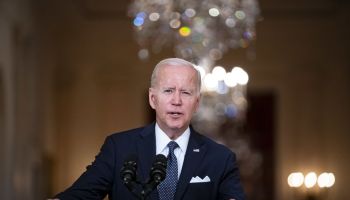By John Dickerson
After it was announced that Egyptian President Hosni Mubarak was stepping down, at about 11 a.m. on Friday, the White House announced that President Obama would speak at 1:30 p.m. Then word came that the statement would be delayed and the time was TBD, which was fitting. Throughout the 18 days of protest in Egypt, U.S. policy constantly felt like it was to be determined. At first supportive of Mubarak, U.S. policy slowly moved to appear supportive of his ouster, stopping in the middle to appear to contradict itself.
It looked sloppy. But diplomacy is always going to look sloppy when events are moving this quickly. The president can’t move at Internet speed. By the time government officials had accurate information about what was actually happening in Cairo, the situation had changed. (The announcement was delayed Friday to make sure everyone had a clear picture.) On the other hand, there were some moments when the White House did itself no favors. CIA director Leon Panetta speculated Thursday that Mubarak would step down that night. He was wrong. There was no advantage in giving an opinion.
The administration has also been criticized for not siding loudly enough with the protestors. America proclaims itself as a great promoter of freedom and democracy. Former Chief of Staff Rahm Emanuel used to boast that the president’s speech in Cairo two years ago calling for political transformation was the most important foreign policy speech in 20 years. Yet when the time came for forceful words to help protesters in the streets of Cairo, Obama seemed to lose his voice.
Professor Jennifer Windsor of Georgetown University, who was formerly the executive director of Freedom House, argues that the administration failed long before this crisis, removing funding for groups that promote civil society in Egypt. Former administration adviser David Axelrod said the president had been quietly confronting Mubarak about reform for two years. Did he when the two talked on Jan. 18 after the change in government in Tunisia? Or did the president reassure Mubarak about the stability of U.S. support for his rule, as one administration official suggested?
We won’t know whether the president and his team missed a decisive moment until the history books are written and we learn what they were juggling. What we do know now is that top administration officials started each day together, and ended them with 1 a.m. conference calls. And they were dealing with a rapidly changing situation about which information was unreliable, involving a 30-year ally in the most dangerous region in the world. That increases the degree of difficulty a bit.
The administration was also concerned that the United States not be seen as meddling in an organic movement. President George H.W. Bush faced a similar situation when the Berlin Wall fell. As he notes in his book, he was criticized for not speaking out. Democratic Congressional leaders said he was not doing enough to promote freedom and democracy. He resisted for days before finally saying, “We will not exacerbate the problem by having the president of the United States posturing on the Berlin Wall.”
Story Compliments Of Slate.com
















